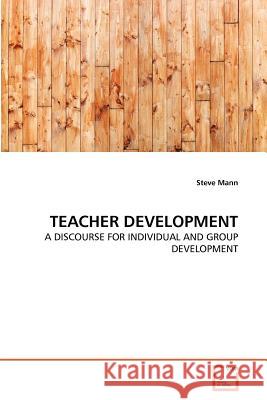Teacher Development : A Discourse for Individual and Group Development » książka
Teacher Development : A Discourse for Individual and Group Development
ISBN-13: 9783639350401 / Angielski / Miękka / 2011 / 328 str.
This book is an account of a qualitative case study drawing on discourse analysis and ethnographic traditions. The aim of the study is to provide a description of the discourse consciously constructed by a group of six TESOL professionals in the interests of their own development. Once a week, the group met for one hour and took turns to act as 'Speaker'. The other five individuals acted as Understanders. The extra space given to the Speaker allowed a fuller articulation of a problem or focus than would normally be possible in other professional talk. The Understanders contributed moves to support this articulation. The description covers a two-year period of this constructed discourse. Data, collected during this period, are drawn from several different sources: recordings, interviews, diaries and critical incident journals. In particular, the study looks at the key role played by 'Reflection' in this process. It is argued that Reflection is the key element in supporting the Speaker. The book draws on the work of Julian Edge (1993, 2002, 2011) and presents an evaluative perspective on his Cooperative Development framework.











